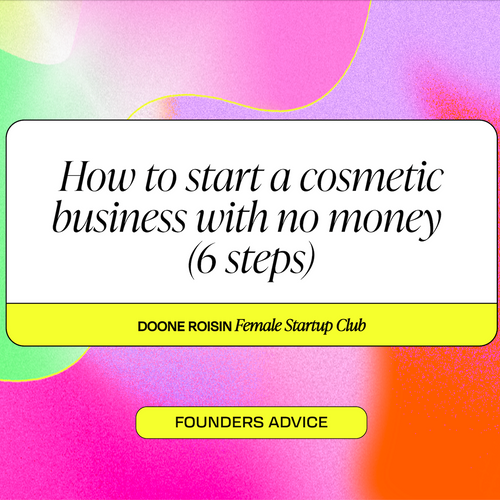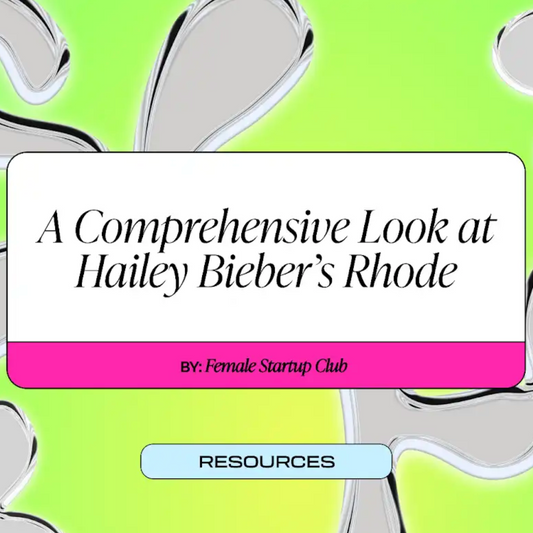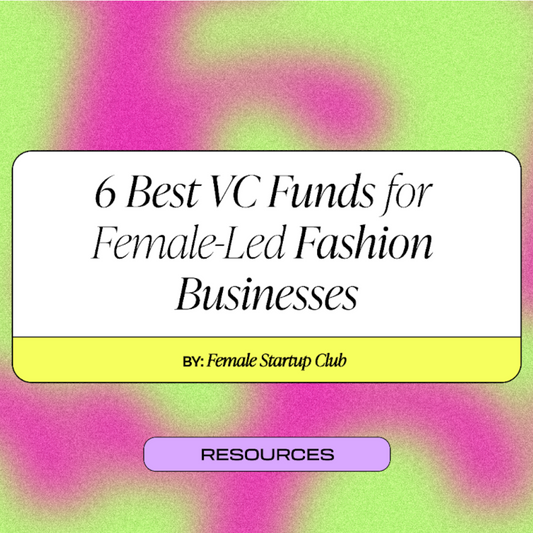Today we’re learning from a fashion veteran, Elyce Arons. She’s spent more than a decade building Kate Spade and then went on to do it all again with Frances Valentine.
Frances Valentine was founded in 2016 alongside her close friends Kate and Andy Spade. Rooted in joyful self expression, the brand offers a spirited collection of original, vintage-modern apparel, shoes and accessories designed to brighten and delight the lives of the women who wear them, as well as a growing line of home goods.
In this ep we talk about:
-
Learning the hard way: why we shouldn’t buy into excess inventory and always order the smallest amount you can with the aim to sell out
-
Building a fashion empire second time around
-
Why using traditional marketing methods might be the key to new growth > and to try anything out once

In this episode, Elyce shares her journey, wisdom, and some invaluable lessons learned along the way. Let’s dive into some of the key takeaways from our chat!
Learning the Hard Way: Inventory Insights
One of the biggest lessons Elyce learned in her fashion career is the importance of inventory management. “You should always aim to order the smallest amount possible with the goal of selling out,” she advises. This approach helps avoid the pitfalls of excess inventory, which can quickly become a financial burden. It’s all about striking a balance between demand and supply, keeping your stock fresh and your cash flow healthy.
Building a Fashion Empire—Again
Rebuilding a fashion brand can be daunting, especially when you've already achieved great success once before. Elyce reflects on the challenges she faced in her second venture with Frances Valentine. “It was harder the second time around,” she admits. The landscape had changed dramatically, with increased competition and new marketing dynamics. However, Elyce emphasizes that with a solid product and the right people believing in your vision, it’s possible to navigate those challenges. “Stick to your guns,” she says. “You know what’s best for your brand.”
Embracing New Marketing Methods
The world of marketing has transformed significantly since Elyce first entered the industry. After taking time off to raise her kids, she returned to a landscape where traditional methods had shifted. “I didn’t realize how important digital media and social media would be until we started,” she shares. Today, influencers play a role akin to that of magazine editors in the past, and Elyce recognizes the need to adapt continuously. Yet she also highlights that PR and editorial content remain crucial pieces of the puzzle in fashion.
The Money Talk
When it comes to funding a fashion venture, Elyce has some strong advice: “I wish there were more female investors.” She emphasizes the importance of finding the right investors who resonate with your brand. For Elyce, tapping into the right networks early on was essential. She suggests keeping an eye on industry publications like Business of Fashion, which often highlight investors and their interests. “If you can't find someone’s email, try reaching out to someone else who might have a connection. You never know where it might lead,” she encourages.
Advice for Aspiring Entrepreneurs
Elyce’s wisdom doesn’t stop there. She has two key pieces of advice for those looking to follow in her footsteps. First, “Don’t spend money you don’t have, hoping that it will come.” It’s a mantra that underscores the importance of financial prudence. Second, she warns against taking on projects that don’t align with your vision: “If you really don’t feel something is right, you’ve got to say no. Stick to what you do best.”
Quick Hits
- Industry Insights: Elyce recommends subscribing to newsletters from Women’s Wear Daily and Business of Fashion to stay updated.
- Inventory Mistakes: One of Elyce's biggest learning moments was ordering too much inventory. Now, Frances Valentine focuses on small batches to ensure they sell out rather than being left with excess stock. “Inventory = cash in boxes,” she reminds us.
As we wrap up this part of Elyce's journey, it's clear that her experience offers valuable lessons for anyone looking to carve out their own space in the fashion world. With perseverance, a clear vision, and a willingness to adapt, it’s possible to create something truly special.
Mark Your Calendar! Don’t forget to save the date: February 28th marks the launch of Your Hype Girl! We can’t wait to celebrate with all our loyal listeners during launch week.
Stay tuned for more insights from Elyce in the next part of this series!



